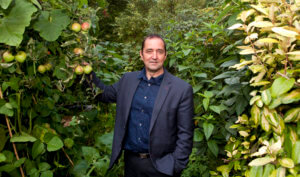The organic sector has been vehemently opposed to genetic technologies in the past, but Alex Smith, vocal anti-GM campaigner and chair of the FDF Organic Committee, said [that] he believed the tide of opinion on GE had now changed and approval was “inevitable”. Organic opposition to the technology could therefore leave the sector marginalized in future policy decisions.

Writing in The Grocer, the founder of Alara Wholefoods said: “I don’t see due diligence arguments working this time. I also don’t see the Daily Mail splashing new ‘Frankenfood’ headlines. Rather, if the organic sector overtly opposes gene editing it is likely to be demonised by the press and marginalized by policymakers.”
Smith has advocated a “hyper-pragmatic” position instead that “acknowledges the strength of the UK in this area, demonstrates we are not Luddites, and supports research and controlled introduction”.
While GM inserts foreign genes from other species into an organism’s genetic code, GE solely relies on genes from the same species. Advocates therefore claim the results are no different to those that could have occurred via natural breeding.
[Omsco’s Richard] Hampton warned, however, that the introduction of GE could damage the UK’s exports to regions such as the EU. Unlike the US, Brussels maintains an outright ban on both GM and GE. However, the European Commission is due to complete a study on GE’s future status by April 2021.































